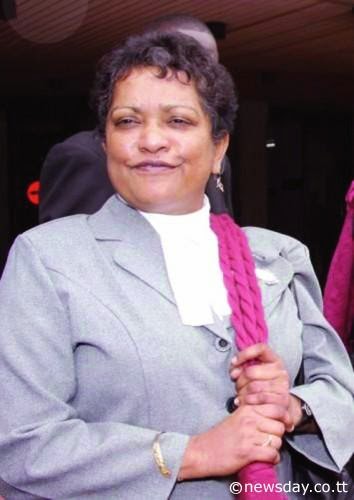THE TRANSFORMATION FROM DICTATORSHIP TO DEMOCRACY IN THE CARIBBEAN
By Pachamama
The recent electoral triumph of Jamaica’s Peoples National Party (PNP) of Portia Simpson-Miller represents the most recent manifestation of the inability of political elites in the Caribbean to satisfy the fundamental requirements of democracy, as an economic system. The defeat of the Jamaica Labour Party (JLP) is best understood within a context of the desperation of Caribbean peoples as we seek to resolve our resource problems and this unremitting malady will not no-time-soon disappear despite the axiomatic utterances to the contrary by the obscurantist popinjays. It comes within current regional and global circumstances where all incumbent governments have or are likely to continue to be easily defeated, electorally or otherwise. Notwithstanding the temporary euphoria within the PNP political tribe, the underlying problems of poverty, lack of housing, crime, budgetary problems, graft and dependency have continued to accumulate across administrations throughout the Caribbean for decades. We have cited elsewhere the relationships between democracy and dictatorship and have argued that there is no measureable difference between dictatorship and elected dictatorship as the accepted model of governance in the Caribbean.
Gene Sharp has drawn on the works of Seti 1, Gandhi, King and others to present a conceptual model for the application of a non-violent arms struggle that has been applied, with a fair degree of success, in the Middle East and North Africa (MENA) countries, the colored revolutions in some of the former USSR republics and that has finally arrived in the USA via the Occupy Movement. Sharp’s model has not been without its detractors. The governments of Iran, Venezuela, Russia, Syria and others have contended that it represents a CIA sponsored plot for regime change in nations opposed to US foreign policy. With great respect and humility, we tend to disagree with this judgment on two bases. Firstly, we consider that any instrument could be used in the peoples’ interests or against those very interests. Secondly, it matters not from whence the means comes. To us what matters most is what will follow the peoples’ popular victories. For it was Deng Xiaoping you postulated that it is not important what the colour of the cat is, once it catches mice. Within this dialectic, we are however forced to concede that our arguments leave more than enough space for imperial forces to subvert the intended aims of any transformationary process in the same way political parties in the Caribbean have subverted the popular will of the people for more than fifty years. Or if the popular will is accepted locally and voters escape the electoral interference of the Republican Institute for Democracy, National Institute for Democracy and other types of so-called Non-governmental Organizations (NGO’s), the other elements as defined within another model from the confessions by the former American economic hit-man John Perkins, could be enforced – assassination or military intervention. These are risks for which the people’s constant vigilance and steadfastness provides a level of self-insurance within a transforming system.
In the case of Jamaica the people are destined for another period in which Perfidious Albion will place a few thousand PNP supporters in jobs now held by JLP tribesmen/tribeswomen, redistribute some economic advantages to a few more elites that were excluded by the JLP, and will seek to tinker with the systems at its margins but no fundamental transformation will occur. None! In fact we consider that the global economic environment is as such that Simpson-Miller, like the first time at bat, will soon find herself in a position where another election could be necessary. So, why are we content, as a Caribbean people, to continue to engage this political merry-go-around? What evidence is there that political leaders or parties are any better the second, third or fourth time around than they were initially? Why should we continue to entrust our hopes and aspirations to a failing system? Why do we continue to add even an ounce of concrete to reinforce the pillars of this dying system, a system that never had the masses of people at its centre in the first place and was not constructed to serve that purpose?
The Sharp conceptual model may represent the means by which the political and economic structures of the Caribbean can be transformed. It is built on the assumptions that dictatorial regimes have military, political, diplomatic, economic and other strategic means by which to constantly wage war on their peoples. On the other hand, ordinary people are finding new and creative means of confronting the establishment with an array of social weapons in a non-violent war to determine they own destinies. People’s weapons could be deployed based on a confrontational strategic framework that recognizes the importance of winning over the elements of state power; patience; refusal to cooperate with the establishment; avoidance of atomization; presentation of the movement as more capable than the establishment in providing communal services; an insistence and constant re-establishment of non-violence as the main strategic weapon; adroit tactical responses – for example, giving the police flowers or putting smiling women to the front of marches, other acts of de-escalation; continued mobilization of the community using a range of tactics that include the utilization of technology.
We judge that the Caribbean is unlikely to avoid both the wave of revolutions occurring in South & Central America and the Awakening Movement elsewhere. We also judge that we have not been served well by either communism, socialism, capitalism or a mix of these models. Given these circumstances, an awakened Caribbean must rise to the task of helping the world find a better way forward. The election of Portia Simpson-Miller and the PNP does not represent such a departure from this tired system.



Comments